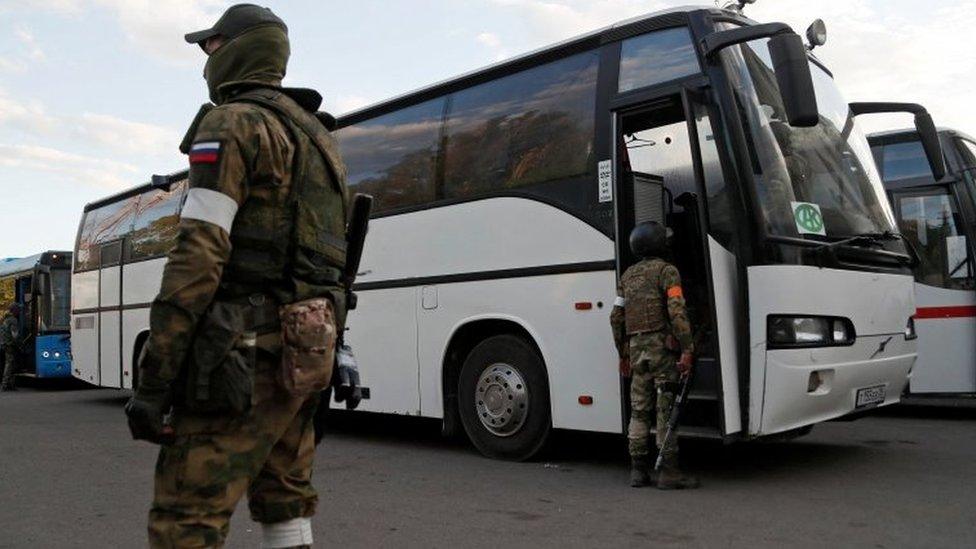Ukraine war: 'I had to stay below ground for more than 60 days'
- Published
Katerina spent more than two months beneath the Azovstal steel plant in Mariupol
Katerina closed her eyes and took a breath when I asked about her husband, a fighter, who is still thought to be in the maze of tunnels beneath the Azovstal steel plant in Mariupol.
She'd been calm and composed until now. She too spent more than two months in one of the bunkers under the vast industrial facility with her two sons where the bombardment felt like it would never end.
"The missiles were so heavy it felt like the bunker walls were moving and the rooms themselves became smaller," she told me.
"Sometimes there was a one-hour break and we hoped maybe that's it. Maybe that's the end of it. But no. They carried on."
Behind us, her two boys, aged 6 and 11, were playing with guns made from paper and duct tape.
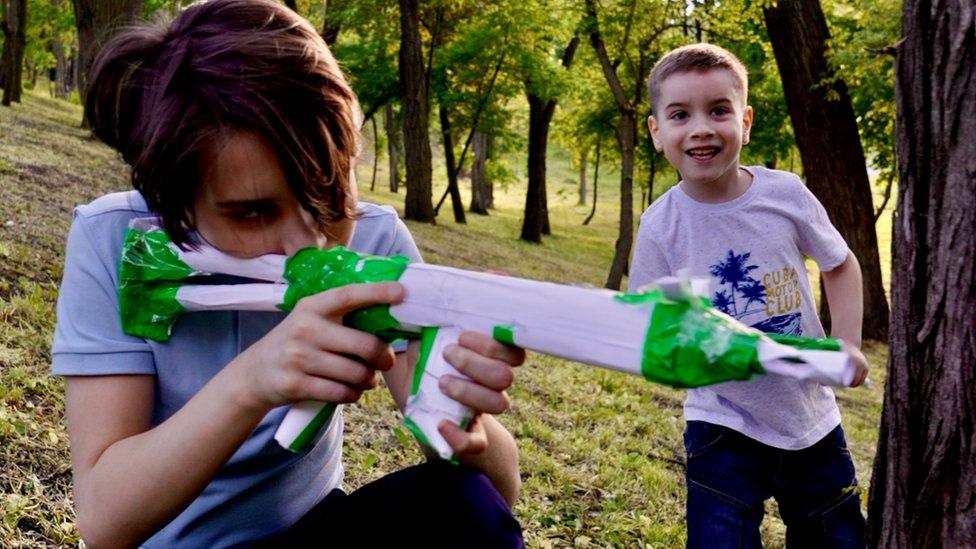
Katerina first took her two sons to the Azovstal steel plant in early March
"They are adapting to being outside again," said Katerina.
"Seeing them running around in the sun again is the best feeling in the world."
She remembers all three of them being "blinded by light" as they finally emerged after two months in their dark refuge under the steel plant.
As the two boys duck and dive behind the trees in the park, they pretend they're fighting Russians. At one point they drop to the ground and shout 'cover your ears'. One gives the shout of 'all clear' and they stand up and get going again.
It's haunting to watch.
Even the games with the guns feel realistic as they practice putting in a fresh magazine of bullets. They have obviously seen this up close.
Katerina believes their father is still at the plant. She heard from him earlier this week and he was his usual upbeat self.
"He is a very strong man, strong in spirit. He has been supporting me all my life."
It was love at first sight, she told me with a smile. Their hometown of Mariupol has now been hollowed out by Russian bombs.
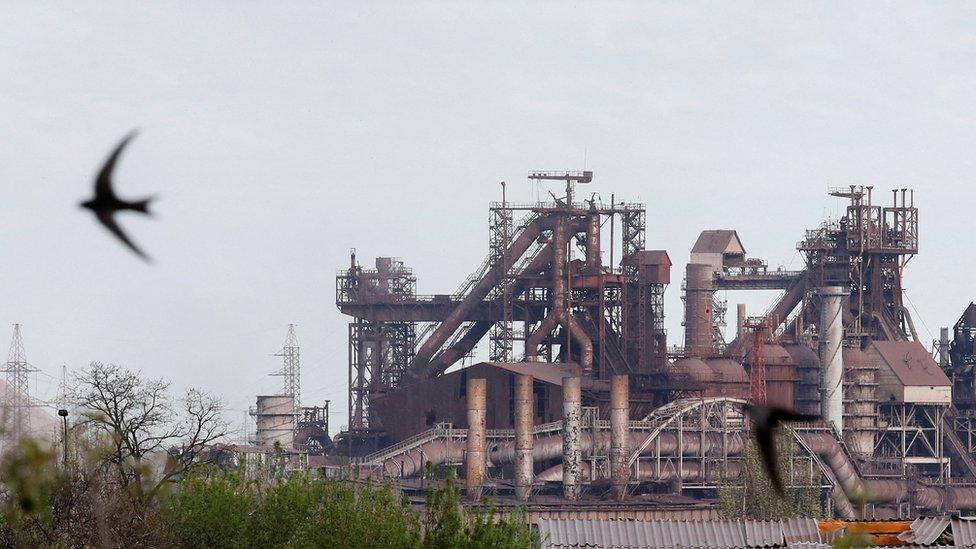
The steelworks is a vast industrial area full of underground tunnels and other fortifiable locations
Katerina first took her two boys to the Azovstal steel plant in early March, just after the first strikes on the port city. She thought they would use it as a shelter for maybe one or two days - a week at most. But as the bombing intensified, they had to stay below ground for more than 60 days.
Supplies dwindled. Food and water became scarce - along with information. As Russian forces encircled the city, she and around 30 others in their bunker were cut off.
Occasionally she would get a visit from her husband as he and around 1,000 other Ukrainian fighters continued to defend the steel plant - their last holdout.
"Whenever he visited us there, he would always tell us to hang in there, boosting everyone's morale, joking, laughing, cheering, telling us that we should not worry and that everything is fine.
"It was frightening because they were coming and leaving under shelling. It was weird to see them that cheerful, but I don't think there was any other way. In terms of morale and spirit, I think he is one of the strongest there."
Katerina was finally brought above ground during an operation to free civilians organised by the Red Cross and the United Nations.
I first met her at the evacuation centre in Zaporizhzhia. When she stepped off the bus she had everything she owned stuffed in a rucksack on her back.
"There were several times when we were losing hope that we would ever get out," she told me back then.
Now, two weeks on, she is trying to plan a future for her family.
Her home has been destroyed, she has spent two months in a cold and fetid bunker beneath a steel plant and now she is watching and waiting for news for her husband.
And yet she remains upbeat - resilient.
"I am confident that it will be fine for us. I'm confident that Ukraine is going to win and stay and independent state."

War in Ukraine: More coverage
MILITARY: Retired colonel speaks out on Russian TV
ANALYSIS: The spy war within the war
READ MORE: Full coverage of the crisis, external
Related topics
- Published7 May 2022
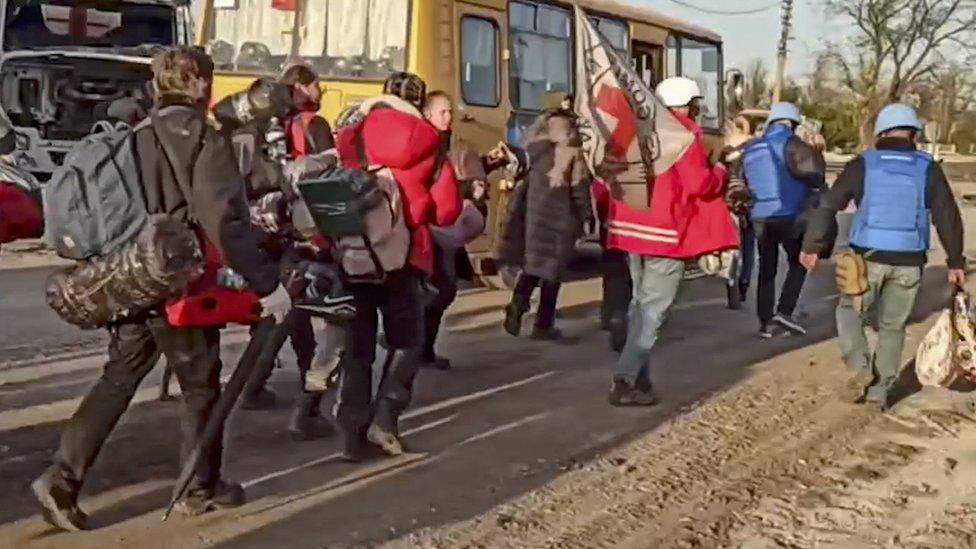
- Published17 May 2022
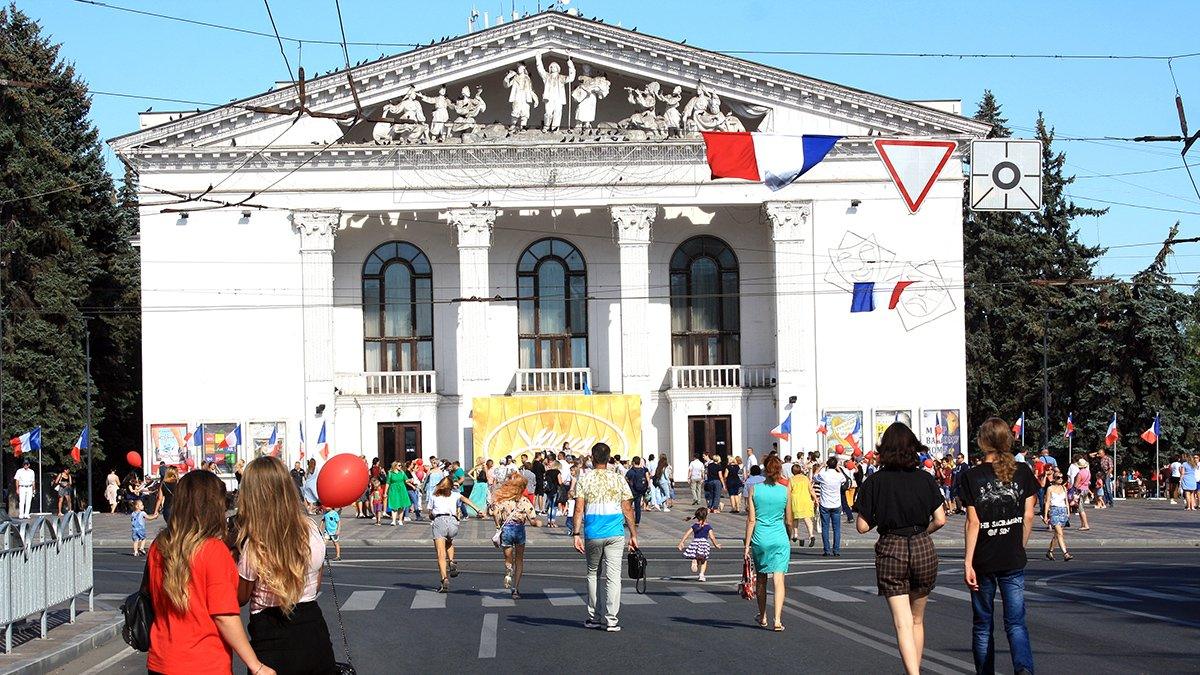
- Published18 May 2022
